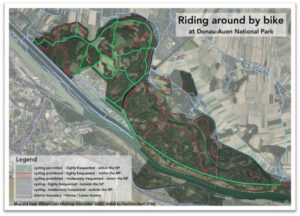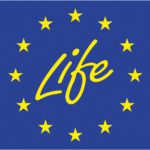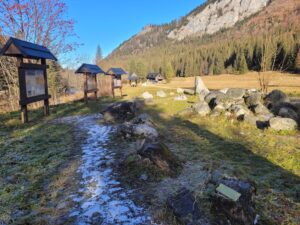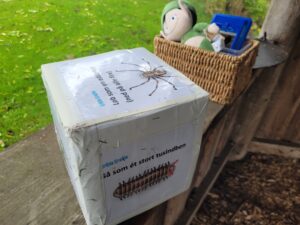Welcoming visitors: How to positively include visitors into a Protected Area
Three case studies highlighting successful ways to welcome visitors in Protected Areas.
Welcoming visitors: How to positively include visitors into a Protected Area
Protected areas and tourism departments can enhance the visitor experience by making nature more accessible, inclusive, and easy to navigate—without harming the environment. This means creating clear signage, accessible trails and entry points, user-friendly maps and apps, and offering services that cater to a range of needs and abilities. By designing experiences that are welcoming and informative, visitors feel safe, inspired, and more connected to nature. When access is thoughtfully managed, it supports both a positive user experience and the long-term health of natural areas.

(c) Latgales Tūrisma asociācija
Case Study 1: Hiking boom and the necessity to be present
With the recent pandemic, many people were introduced to their local landscapes and experienced first hand benefits to spending more time out in nature. This increase in activity was an opportunity for the Latgale Tourism Association who saw this as an opportunity to diversify the options available to visitors in the area. Read how they implemented projects to establish long distance hiking trails within and across landscapes, focusing on facilitating a good user experience.
Full Case StudyCase Study 2: Creating visitor profiles to guide the customer-centered service development of Metsähallitus Parks and Wildlife Finland

(c) Metsähallitus Parks and Wildlife Finland
Just like we celebrate the diversity of nature, we should recognise and celebrate the diversity of visitors and their expectations or needs. Metsähallitus Parks and Wildlife Finland have done exactly that using a service design approach based on visitor insight. This in-depth research led to the highly successful development of a diversity of visitor profiles which have been used to mark hiking trails and much more, allowing the park to nudge the visitors into behaviours which best match their needs, leading to better experiences.
Full Case Study
Lobau Together Week. (c) Susanne Leputsch
Case Study 3: Visitor Management Lobau 2023+ customised solution for periurban challenges in the Viennese share of Donau-Auen National Park
Our third example is a collaborative approach of identifying challenges and solving them together with the local stakeholders including police and political decision-makers. Read about the “Lobau Together Weeks” which resulted in a better relationship between the many people visiting this periurban park. Perhaps your park has implemented something similar?
Full Case StudyThese case studies show a more positive view of visitor management in Protected Areas, but we also understand that some areas have trouble with “overtourism”. To explore techniques employed to manage the negative effects of high visitation rates, read our previous article.
Do you also have interesting experiences, projects or challenges that you have overcome in successful and creative ways? Consider submitting a case study and be featured in our EUROPARC news. Please visit our Knowledge Hub or reach out to us if you have any questions!
Adapting to Increased Visitation: Practical Approaches to Visitor Management in Protected Areas
Four case studies highlighting successful approaches to visitor management in Protected Areas.
Adapting to Increased Visitation: Practical Approaches to Visitor Management in Protected Areas
The post-pandemic era has witnesses a remarkable surge in visitors to Protected Areas, creating both opportunities and challenges for park management. This article explores four case studies of visitor management approaches. Each case demonstrates successful practical strategies for balancing public access with environmental protection.

©Petra Niskanen
Case Study 1: Limits of acceptable changes (LAC) as a method for sustainable nature tourism in Sipoonkorpi National Park
Situated close to Finland’s capital city, Sipoonkorpi National Park has noticed a significant increase in nature based tourism since Covid-19. Though it is great for people to be out in nature, this increase of visitors has had negative social and ecological impacts such as visitor compaints and negative effects on wildlife. To manage this change, Sipoonkorpi National Park has implemented a new strategy that aims to dynamically track these negative impacts and to take necessary measures.
Full Case Study
©Strava.com Heatmap
Case Study 2: Detecting cycling activities with the use of Strava Heatmaps; Use of online available data in questions of visitor management
Lobau, a protected area of riparian forest along the Donnau in Vienna, is within a district that is expected to have a population increase of 50% in the next few years. This poses a threat to wildlife and recreational visitors in the Donau-Auen National Park. Fitness tracking applications like Strava can provide evidence of misuses of trails. The park staff have begun to collaborate with key stakeholders and partners to enable quick action such as key communication strategies in order to ensure the proper use of the park’s trails.
Full Case Study
©Parc Natural de Cap de Creus
Case Study 3: Regulation of frequentation and access at Cap de Creus Natural Park
Parc Natural de Cap de Creus has encountered challenges with visitors disrespecting pre-existing park rules and regulations. Addressing this issue became a priority to safeguard natural sites, particularly those that are environmentally sensitive. Strict measures were taken up to enforce the regulations with physical barriers and clear communication by both the park staff and local businesses. Monitorring the result has demonstrated improvements in visitor behaviour.
Full Case StudyCase Study 4: Carrying capacity: visitors study in Parco Nord Milano, a periurban park

©Parco Nord Milano
In order to make better assessment for the development of an effective park management plan, data is required, and that is what the Parco Nord Milano aims to pursue. The park set an ambitious goal to understand its visitor demographic using both new technology and on site staff members.
Full Case StudyThese case studies show that effective visitor management in Protected Areas requires an integrated approach, combining scientific monitoring, technology, community engagement and dynamic strategies. As nature tourism continues to grow, the lessons learnt from these parks provide valuable inspiration for park managers looking to address similar challenges.
Do you have interesting initiatives that you would like to share with us? Or would you like to submit a case study? Please visit our Knowledge Hub!
Out now: EUROPARC’s Protected Areas In-Sight Volume 16!
The Protected Areas In-Sight is EUROPARC’s annual journal, which follows the theme of the EUROPARC Conference. Discover the latest edition now! Available in English, French and German.
Effective Management, Better Parks
The Protected Areas In-Sight aims to inspire its readers with success stories from across the EUROPARC Network. This issue of the Protected Areas In-Sight explores how we can strengthen the management effectiveness of Protected Areas through collaboration, learning and innovation.
New approaches are emerging to bridge gaps and drive meaningful change through more effective and inclusive management.

Michael Hošek
writes EUROPARC’s President, Michael Hošek, in the Magazine’s editorial.
The 2024 edition of our Protected Areas In-Sight explores four key pillars to the E-Forum theme “Protected Area Management Effectiveness”:
- Planning
- Governance
- Capacity Building
- Communication
It includes 12 articles from Protected Area Professionals across Europe, showcasing the stories and projects with a shared commitment to building resilient and well-managed conservation areas that benefit both nature and people.
Powered by the EUROPARC Community
As always, the Protected Areas In-Sight would not exist without the dedication of our network! In this edition, you will find articles from:
- The European Environmental Angency writes about dangerous tipping points;
- Metsähallitus Parks & Wildlife Finland share experiences of their management effectiveness evaluation;
- Fungobe sharing their experience on good governance in Protected Areas;
- Youth voices from Biosphere Reserves share their journey from dialogues to formalising a national network;
- The E.C.O Institute for Ecology shares how to communicate effectively to close the science-practice divide;
- The “Frame of Life” movement shares how effective citizen science can drive nature conservation;
Furthermore, interesting insights from our projects such as the LIFE ENABLE, MPA4Change, LIFE PAME Europe , Interreg Europe GREENHEALTH and Horizon Europe NaturaConnect projects explore what is needed for nature conservation that is future-ready.
Discover it yourself! You can flip through all three versions here:
If you’d prefer to download the Protected Areas In-Sight, we invite you to check out our digital library, where you can also find all previous editions.
EUROPARC members will receive a physical copy of the Protected Areas In-Sight in the upcoming weeks.

The publication of the Protected Areas In-Sight is co-funded by the European Commission. Views and opinions expressed are however those of the author(s) only and do not necessarily reflect those of the European Union or CINEA. Neither the European Union nor CINEA can be held responsible for them.
How Can Protected Areas Become Hubs for Education for Sustainable Development
For the last year, the Alfred Toepfer Natural Heritage Scholarship supported the work of young conservationists in Protected Areas across Europe. Lucia Cușnir was one of the winners of the Scholarship in 2023 and travelled to Slovakia, Denmark, Hunary and within Romania to learn more about how Protected Areas can implement Education for Sustainable Development.
How Can Protected Areas Become Hubs for Education for Sustainable Development

Protected areas are no longer seen just as conservation zones to protect our natural and cultural heritage — they are increasingly being recognized as dynamic learning classrooms for people of all ages. These landscapes provide powerful opportunities for education, offering immersive, hands-on experiences that connect individuals with nature, culture, and sustainability in meaningful ways.
Education for Sustainable Development (ESD) in protected areas serves as a bridge between conservation efforts and community engagement, ensuring that people not only understand but actively participate in protecting our natural and cultural heritage.
Learning from the Field
This study tries to explore best practices, challenges, and opportunities in implementing ESD initiatives & activities across European protected areas, drawing insights from study visits to Tatra National Park (Slovakia), Lille Vildmose Centre (Denmark), Hortobágy National Park (Hungary), and the Danube Delta Biosphere Reserve (Romania).
Through qualitative research methods, including field observations, stakeholder interviews, and participatory engagement, the study highlights the diverse ways in which protected areas integrate ESD initiatives and activities into their management. Interpretive visitor centers, educational and interpretive trails, guided tours, Junior Ranger programmes, and hands-on conservation activities serve as key tools in fostering environmental awareness and responsibility. Additionally, local engagement through festivals, volunteering initiatives, and citizen science programs reinforces the role of communities in ESD.
Protected areas that prioritize community voices, cultural relevance, and local ownership are more likely to foster long-term conservation engagement.

Tatra National Park, Slovakia, photo by Lucia Cușnir
Challenges and Opportunities in ESD
Despite strong local leadership and inspiring examples, many protected areas struggle with the same challenges: underfunding, staff shortages, and rigid policies that don’t reflect field realities. Rangers and educators often work beyond their mandates, driven by passion but lacking support.
However, there are also opportunities. Cross-sectoral partnerships with other protected areas, NGOs, educational institutions, and local authorities can enhance the reach and impact of ESD efforts. By sharing resources, and learning from each other’s experiences, these collaborations can create more resilient and innovative education programs.

Lille Vildmose Centre, Denmark, photo by Lucia Cușnir
The Way Forward
For ESD to truly thrive in protected areas, it must be supported by policies that reflect real field experiences, and designed with flexibility in mind. Protected areas must also recognize that every ranger on patrol, every school visit, and every community gathering is a moment of education — and an opportunity for stewardship.
As this study shows, education doesn’t just happen through formal strategies. It lives in stories, gestures, trails, shared meals, and simple conversations on the field. ESD isn’t just about delivering information — it’s about sparking curiosity, sharing stories, and leading by example. When people meet the passionate educators and rangers behind conservation, they don’t just learn — they care.
Dive deeper into this topic through the report below!
Read the full report here!